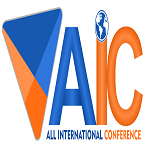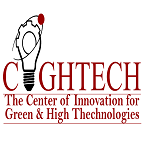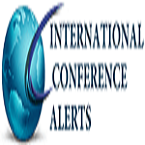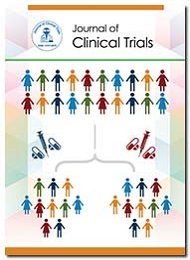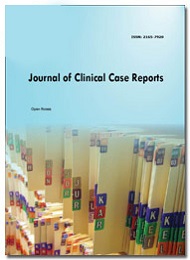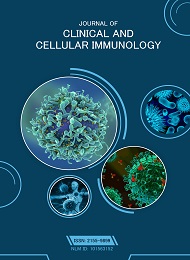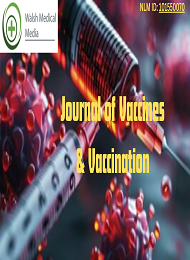Theme: Vaccine Safety and Efficacy: Overcoming Challenges in Clinical Trials
Vaccines Congress-2024
- Vaccine and Clinical Trials
- Vaccines Congress-2024
- Sessions and Tracks
- Market Analysis
- VISA-Trip Advisor
Vaccines Congress-2024
About Vaccine congress in Vancouver, Canada:
Conference Series LLC Ltd organizes a conference series of 1000+ Global Events inclusive of 1000+ Conferences, 500+ Upcoming and Previous Symposiums and Workshops in USA, Europe & Asia with support from 1000 more scientific societies and publishes 700+ Open access Journals which contains over 50000 eminent personalities, reputed scientists as editorial board members. With the grand success from the previous relevant annual International conferences, ConferenceSeries Llc Ltd is organizing "36th Annual Congress on Vaccine and Clinical Trials" (Vaccines Congress-2024) scheduled during December 05-06, 2024 Vancouver, Canada. Vaccines Congress-2024 brings together the global leaders Vaccines and relevant fields to present their research at this exclusive scientific program.
Details of Vaccines Congress-2024 Conferences in Canada:
|
Conference Name |
Place |
Date |
|
Vancouver, Canada |
December 05-06, 2024 |
The Vaccines Congress-2024 conference hosting presentations from editors of eminent refereed journals, renowned and active investigators and decision makers in the field of infectious diseases, Cancer Vaccines, Toxoid Vaccines, Vaccine and Clinical Trials, Vaccines Congress-2024 Organizing Committee also invites young investigators at each and every career stage to submit abstracts reporting their latest scientific researches in oral and poster sessions.
36th Annual Congress on Vaccine and Clinical Trials is scheduled to be held during December 05-06, 2024 Vancouver, Canada. This Vaccines Congeress-2024 includes a wide range of Keynote presentations, Oral talks, Poster presentations, Symposia, Workshops, Exhibitions and Career development programs.
Conference series LLC Ltd Organizes 3000+ Global Events Every Year across USA, Europe & Asia with support from 1000 more scientific societies and Publishes 700+ Open access journals which contains over 100000 eminent personalities, reputed scientists as editorial board and organizing committee members. The conference website will provide you list and details about the conferences organize worldwide.
Why to Attend???
Vaccines Congress-2024 Conference is a multidisciplinary program with broad participation with members from around the globe focused on learning about Vaccines and its advances. This is your best opportunity to reach the largest assemblage of participants from Vaccines community, Clinical research that is from academia, medical groups, related associations, societies and also from government agencies, biomedical and medical device industries.
Vaccines Congress-2024 will discuss various disciplines involved in the vaccines research; it will educate health care researchers about design, operation, organizing, and research computing, regulatory aspects. It promotes better understanding by the general public about the importance of vaccines in prevention, diagnosis and treatment of disease. This conference conduct presentations, distribute information, meet with current and potential scientists, make a splash with new research developments, and receive name recognition at this 2-days event. World renowned speakers and the most recent techniques, developments, the newest updates in Vaccines Research are hallmarks of this conference.
Who Should Attend?
- Principal Investigators
- Medical Directors
- Methodologists
- Directors/Executive Directors
- Vice Presidents/Senior Vice Presidents/Executive Vice Presidents
- Heads/Leaders
- Deans/Senior Professors/Associate Professor/Assistant Professors
- Research Scholars
- Scientists
- Vaccinologists
- Business Entrepreneurs
- Students
- Medical Devices Manufacturing Companies
- Vaccine Manufacturing Companies
- Vaccine Developers and Investigators
2024 Highlights:
300+ Participation (70 Industry: 30 Academia)
5+ Keynote Speakers
50+ Plenary Speakers
14 Innovative Educational Sessions
5+ Workshops
B2B Meetings
Advantages of Participating at our Conference
- The advantages of the Speaker and abstract pages are created in Google on your profile under your name would get worldwide visibility.
- Our comprehensive online advertising attracts 30000+ users and 50000+ views to our Library of Abstracts, which takes researchers and speakers to our conference.
- Meet with hundreds of like-minded experts who are pioneers in Vaccines and share ideas.
- All participants in the conference would have a different reason to participate with eminent speakers and renowned keynote speakers in one-to-one meetings.
- A rare opportunity to listen what the world's experts are learning about from the world's most influential researchers in the area of Vaccines and Clinical Trails at our Keynote sessions.
- Vaccines intensive conference schedule, you will acquire experience and expertise in strategic gift preparation that is worth its weight golf, forming an impressive array of recognized professionals.
- Best Poster Award nominations.
- Award for Outstanding Young Researcher.
- Group Registration Advantages.
Benefits of Participation for Speaker
- Worldwide appreciation of the profile of Researchers.
- Obtain credits for professional growth.
- Explore the latest of cutting edge analysis.
- Make long-term bonds at social and networking activities.
- An ability to advertise one page in the distribution of abstract books and flyers that ultimately gets 1 million views and adds great value to your research profile.
- Learn a transition beyond your area of interest to learn more about new subjects and studies away from your core subject of Vaccines and Clinical Trials.
- We have distinctive networking, learning and enjoyable integration into a single package.
- Each speaker has the separate Speaker profile.
Benefits of Participation for Delegate
- Professional Development-Improve understanding and knowledge.
- Attendance at conference supports, rejuvenates and energises delegates.
- Your involvement in our conference will help with a new methodology and ideology that can be used to broaden the outcomes of businesses or industries.
- Opportunities for Vaccines researchers and experts in the same field to meet and exchange new ideas through an conference.
Benefit of Participation for Sponsor
- Exposure to the international environment would increase the possibility of new companies.
- Opportunity to demonstrate your company's latest technologies, new products, or service your business to a wide range of international participants.
- Increase business by our conference participants through lead generation.
- It takes a lot of time, effort and drive to create a successful company, so it's always nice to have a network of colleagues and associates to draw energy from individuals who share a common drive and objective.
- Conferences in vaccines provide opportunities for more attention and contemplation that could help you move your company to the next stage.
- Benchmarking main organization plans and moving it forward.
- Get feedback from trustworthy people at our conference to your company questions and challenges.
- On our conference banner, website and other proceedings, branding and marketing content, the advertising logo of your company.
Benefit of Association for Collaborators
- Nobody has this massive visitors to Vaccines and Clinical Trials in the world, this is the best forum to highlight society.
- Creating long-lasting peer relationships.
- In our conference banner, website and other proceedings, branding and marketing material, promotional content and your Organization logo will increase your number of subscribers/members by 40%.
- The exposure of our event to your Company listing in the Global Business forum will have a great effect on your association.
- Your representatives can network to update their knowledge and understanding of your organisation and services with key conference delegates.
- Vaccines advertising materials such as posters, brochures, pamphlets, services that will be circulated to hospitals, universities, society and researchers will be integrated with information.
Track 01: Vaccine and Vaccination
Track 02: Severe Acute Respiratory Syndrome Coronavirus 2 (SARS-CoV-2)
Track 03: Cancer Vaccines
Cancer vaccines are a form of immunotherapy that can help educate the immune system about what cancer cells “look like” so that it can recognize and eliminate them.
Vaccines have proven effective in preventing diseases caused by viruses and bacteria. Since the first vaccine was developed more than 200 years ago, they have prevented some of the twentieth century’s deadliest diseases and have helped save hundreds of millions of lives globally.
In the case of diseases caused by viruses (e.g., measles, polio, and smallpox) and bacteria (e.g., diphtheria, tetanus, and tuberculosis), vaccines work by exposing people to a weakened or inactivated version of the threat. This enables their immune system to identify these threats according to their specific markers—known as “antigens”—and mount a response against them. These vaccines typically work best in the preventive setting, when an individual is given the vaccine before being infected by the bacteria or virus.
In the case of cancer, however, the situation is more complicated for several reasons (more below) and this has made it more difficult to develop vaccines to either prevent or treat cancer. In particular, unlike bacteria and viruses, which appear foreign to our immune system, cancer cells more closely resemble our normal, healthy cells. Furthermore, each individual’s tumor is in some sense unique and has its own distinguishing antigens. As a result, more sophisticated approaches are necessary to develop effective cancer vaccines.
- Preventive Cancer Vaccines
- Therapeutic Cancer Vaccines
- Personalized Neoantigen Vaccines
Preventive Cancer Vaccines:
Viral infections are responsible for the development of several cancers and preventive vaccines play an important role in reducing risk. For instance, cervical cancer and head and neck cancer can be caused by human papilloma virus, or HPV, whereas liver cancer can be caused by hepatitis B virus or HBV. Several vaccines have been developed that can prevent HBV and HPV infection and, as a result, protect against the formation of HBV- and HPV-related cancers.
Four of these preventive cancer vaccines have been approved by the U.S. Food and Drug Administration (FDA).
Therapeutic Cancer Vaccines:
Each individual’s tumor is in some sense unique and has its own distinguishing antigens. As a result, more sophisticated cancer vaccine approaches are necessary. Fortunately, doctors can now identify targets on patients’ tumors that can help distinguish cancer cells from their normal cells. Sometimes these targets are normal proteins that are produced at abnormally high levels by cancer cells, such as prostatic acid phosphatase (PAP), which is often overexpressed by prostate cancer cells. Taking advantage of that insight, the sipuleucel-T vaccine was developed and received FDA approval in 2010 for the treatment of patients with advanced prostate cancer. Additionally, virus-derived proteins expressed by virus-infected cancer cells offer another promising source of markers that can be targeted through vaccines. Another exception is Bacillus Calmette-Guérin, or BCG, a tuberculosis vaccine that acts as a general immune stimulant. In 1990, BCG became the first immunotherapy of any type to be approved by the FDA and is still used for the treatment of early-stage bladder cancer.
Track 04: Toxoid Vaccines
Track 05: DNA, RNA & Synthetic Vaccines
Track 06: Vaccines for Pregnant Women
Track 07: Zika Virus Vaccines
Track 08: Vaccines for Unconventional Diseases
Track 09: Vaccine Production & Development
Track 10: Human Vaccines Against Infectious Diseases
Track 11: Combination & Conjugate Vaccines
Track 12: Vaccine Safety & Efficacy
Track 13: HIV, Malaria & TB Vaccines
Track 14: RDT in Antibiotic Research
Track 15: Side-effects of Vaccines
Track 16: Vaccines Manufacturing Technologies
Track 17: Vaccines Research and Clinical Trails
Track 18: New Trends in Vaccines Development
Introduction
The global vaccines market has witnessed remarkable growth over the past few decades, driven by advancements in medical research, increasing awareness about preventive healthcare, and the ongoing pursuit of controlling and eradicating infectious diseases. Clinical trials play a pivotal role in the development, evaluation, and approval of vaccines, ensuring their safety, efficacy, and suitability for widespread use. This market analysis delves into the key trends, drivers, challenges, and opportunities in the vaccines and clinical trials landscape.
Market Trends
-
Rising Demand for Preventive Healthcare: The increasing emphasis on preventive healthcare has elevated the demand for vaccines. Governments, organizations, and individuals recognize the significance of vaccination in curbing the spread of infectious diseases and reducing the burden on healthcare systems.
-
Technological Advancements: Innovations in biotechnology, genomics, and immunology have accelerated vaccine development. This has led to the creation of novel vaccine platforms, such as mRNA vaccines, that have shown immense potential in addressing diseases like COVID-19.
-
Global Health Initiatives: International efforts to eliminate diseases like polio, measles, and malaria have spurred investment in vaccine research and clinical trials. Public-private partnerships and collaborations are driving research forward, aiming to tackle diseases that disproportionately affect developing nations.
-
Personalized Vaccines: The concept of personalized medicine is making its way into the vaccine landscape. Tailoring vaccines to individual genetic profiles could enhance efficacy and reduce adverse effects, making clinical trials even more crucial in understanding these personalized responses.
Market Drivers
-
Pandemic Preparedness: The COVID-19 pandemic underscored the urgency of vaccine development and the vital role of clinical trials. Governments and organizations worldwide are now investing more in vaccine research to be better prepared for future health crises.
-
Growing Disease Burden: The prevalence of infectious diseases like HIV, tuberculosis, and emerging pathogens necessitates continuous vaccine research. Clinical trials are essential to evaluate new vaccines and their potential impact on disease transmission.
-
Changing Epidemiology: Shifting demographics, urbanization, and global travel patterns impact disease transmission dynamics. As diseases cross borders more easily, effective vaccines become imperative, making clinical trials essential to address changing epidemiological trends.
Challenges
-
Regulatory Hurdles: The regulatory process for vaccine approval can be lengthy and complex due to safety concerns. Balancing the need for rigorous testing with the urgency of addressing public health threats presents challenges.
-
Resource Constraints: Conducting clinical trials requires significant financial resources and skilled personnel. In resource-limited settings, this can hinder the timely development and evaluation of vaccines.
-
Vaccine Hesitancy: Misinformation and vaccine hesitancy pose obstacles to vaccine adoption. Ensuring public trust in vaccines necessitates transparent communication and evidence from robust clinical trials.
Opportunities
-
Innovative Trial Designs: Adaptive trial designs and real-world evidence integration can accelerate the vaccine development process while maintaining safety and efficacy evaluations.
-
Collaborative Research: Partnerships between academia, industry, and governments can leverage diverse expertise and resources, expediting vaccine research and development.
-
Emerging Markets: Developing countries present untapped opportunities for vaccine market growth. Tailored vaccine solutions and affordable clinical trial strategies can address specific regional health challenges.
Conclusion
The vaccines and clinical trials market is witnessing a dynamic evolution driven by scientific innovation, global health priorities, and a renewed understanding of the critical role vaccines play in disease prevention. While challenges exist, the opportunities for accelerated vaccine development, personalized medicine, and global health impact through collaborative efforts are substantial. As technology continues to shape the landscape, the role of clinical trials in ensuring safe, effective, and globally accessible vaccines remains paramount.
Data Snapshot
- The global vaccine market was valued at $58.4 billion in 2020 and is projected to reach $108.5 billion by 2027, with a CAGR of 9.3% from 2021 to 20271.
- In 2020, clinical trials for COVID-19 vaccines saw unprecedented speed, with multiple vaccines reaching phase III trials within months2.
- Vaccine hesitancy resulted in a decline in measles vaccination rates, contributing to a 30% increase in reported measles cases globally between 2016 and 20193.
- Developing countries accounted for 64% of vaccine doses administered globally in 2019, reflecting the importance of global health initiatives4.
Footnotes
-
Grand View Research, "Vaccine Market Size, Share & Trends Analysis Report," 2021. ↩
-
World Health Organization, "DRAFT landscape and tracker of COVID-19 candidate vaccines," 2020. ↩
-
World Health Organization, "Measles cases spike globally due to gaps in vaccination coverage," 2019. ↩
-
UNICEF, "Immunization coverage," 2020. ↩
Conference Highlights
- Vaccine and Vaccination
- Severe Acute Respiratory Syndrome Coronavirus 2 (SARS-CoV-2)
- Cancer Vaccines
- Toxoid Vaccines
- DNA, RNA & Synthetic Vaccines
- Vaccines for Pregnant Women
- Travel medicine and vaccines
- Zika Virus Vaccines
- Vaccines for Unconventional Diseases
- Vaccine Production & Development
- Human Vaccines Against Infectious Diseases
- Human Vaccines Against Infectious Diseases
- Combination & Conjugate Vaccines
- HIV, Malaria & TB Vaccines
- RDT in Antibiotic Research
- Side-effects of Vaccines
- Vaccines Manufacturing Technologies
- Vaccines Research and Clinical Trails
- New Trends in Vaccines Development
To share your views and research, please click here to register for the Conference.
To Collaborate Scientific Professionals around the World
| Conference Date | December 05-06, 2024 | ||
| Sponsors & Exhibitors |
|
||
| Speaker Opportunity Closed | |||
| Poster Opportunity Closed | Click Here to View | ||
Useful Links
Special Issues
All accepted abstracts will be published in respective Our International Journals.
Abstracts will be provided with Digital Object Identifier by









